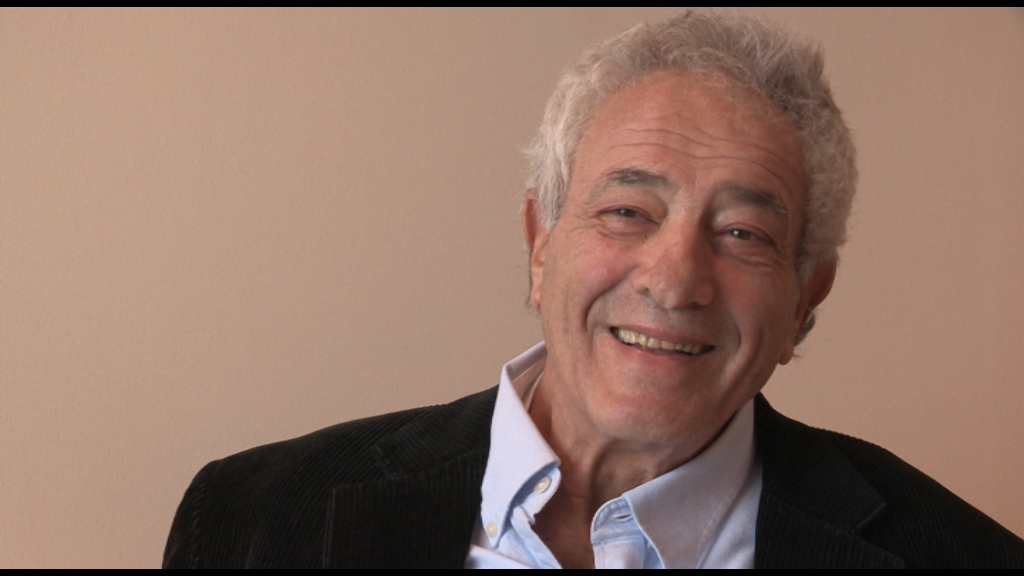NEXT STORY

Summoned to see the boss
RELATED STORIES

NEXT STORY

Summoned to see the boss
RELATED STORIES


|
Views | Duration | |
|---|---|---|---|
| 31. Making a living driving New York cabs | 23 | 02:51 | |
| 32. Bagels in the basement | 31 | 02:30 | |
| 33. Discovering Call It Sleep | 30 | 07:45 | |
| 34. A classic tale about the immigrant experience | 23 | 01:40 | |
| 35. Early success at Avon Books | 32 | 03:19 | |
| 36. Humble beginnings at Avon Books | 46 | 03:33 | |
| 37. Re-publishing Michael Gold's Jews Without Money | 32 | 05:19 | |
| 38. Summoned to see the boss | 27 | 08:33 | |
| 39. Working the lobster shift at the New York Times | 22 | 06:27 | |
| 40. Getting a foot in the door | 15 | 04:30 |


Curiously, I think none of us were married or in very serious relationships so we were always there till six o'clock and seven o'clock and eight o'clock at night and we worked our asses off, and we did a lot of good. And we surprised some of the larger companies, and certainly surprised the Hearst Corporation because we published books that they had no interest in even knowing about. One of them was, Michael Gold's, famous book... well, famous, well, famous and notorious book at some level, Jews Without Money, which was published in 1929 by Horace Liveright. In fact, it was after Call It Sleep was published that I was looking for some other book from that period to rediscover, so to speak, and that book was out of print and I knew it. It was not a very good novel, but actually it was echt, it was authentic and there was something attractively unattractive about the title, Jews Without Money. It was counter-intuitive or against the grain or vulgar without being vulgar, and… So I acquired the rights and then I asked an unknown young socialist who I'd been reading in newspapers and magazines named Michael Harrington, who either knew the book or didn't know the book and perhaps I introduced the book to him, I don't know, if he would write an introduction to it because nobody knew this book at all.
But it was a great book as a sort of document if you like of the American Labour Movement of the immigrants as well. Unlike, Call It Sleep, which was a book of true literary merit, this book had merit also, but of a more documentary sort; Michael Gold was really not a novelist. And I remember publishing the book and it sold reasonably well. It got some attention, and then one day I was taking the subway to work, and I was a strap-hanger for years and years and I learned how to fold The New York Times and I folded it to the obituary page, because people dying interested me almost as much as people living, and there it was on Sunday, it said Michael Gold had died. So I read the obituary.
I'd never met him, but I had had some correspondence with him. He had died on the, if I recall, on the San Francisco waterfront. I think he was a retired longshoreman, I believe. He was a real working man. I think he also, in addition to being a working man in the language of that time, the proletariat, I think he wrote for Max Eastman's The New Masses at that time, not too sure of that any longer, but in any case it said his most famous book was, Jews Without Money, Horace Liveright, 1929, Hearst Corporation, 19 whatever that year was, the year he died, and it said that he'd been a communist in the 30s. But unlike other people after the Hitler-Stalin pact of '38 or '39, when so many communists in the United States renounced their communism because they couldn't believe that the Soviet Union, which was thought to be the wave of the future, could make a pact with Adolf Hitler. I could go on about that, but I won't. Well, Michael Gold had stayed a communist, the obituary said, and he'd been a steadfast communist, and he was till the day he died.
Well, I then turned to the sports pages and then I turned to whatever may have been happening that was awful in the world and I came to work.
Peter Mayer (1936-2018) was an American independent publisher who was president of The Overlook Press/Peter Mayer Publishers, Inc, a New York-based publishing company he founded with his father in 1971. At the time of Overlook's founding, Mayer was head of Avon Books, a large New York-based paperback publisher. There, he successfully launched the trade paperback as a viable alternative to mass market and hardcover formats. From 1978 to 1996 he was CEO of Penguin Books, where he introduced a flexible style in editorial, marketing, and production. More recently, Mayer had financially revived both Ardis, a publisher of Russian literature in English, and Duckworth, an independent publishing house in the UK.
Title: Re-publishing Michael Gold's "Jews Without Money"
Listeners: Christopher Sykes
Christopher Sykes is an independent documentary producer who has made a number of films about science and scientists for BBC TV, Channel Four, and PBS.
Tags: Jews Without Money, Michael Gold
Duration: 5 minutes, 19 seconds
Date story recorded: September 2014-January 2015
Date story went live: 12 November 2015